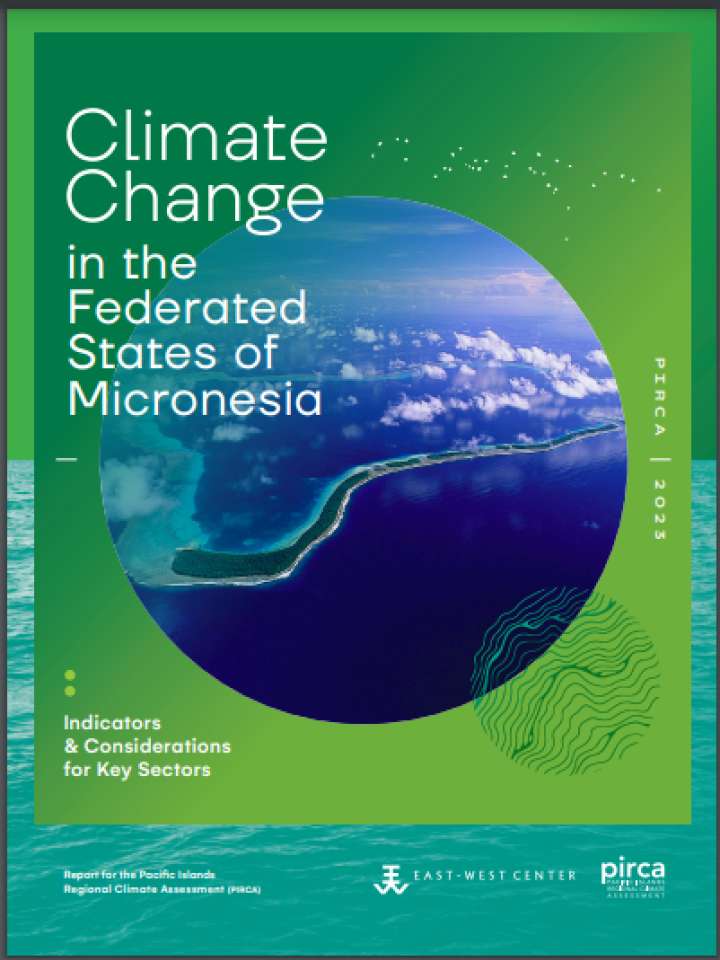Climate change in the Federated States of Micronesia: Indicators and considerations for key sectors
This report provides guidance for decision-makers seeking to better understand the implications of climate variability and change for the Federated States of Micronesia (FSM) and its communities. It also identifies the additional information and research needed to support responses that enhance resilience and enable the FSM to withstand the changes to come.
Some of the key issues for managers and policymakers presented in this report include:
- Infrastructure near coastal areas – Infrastructure design that accommodates or withstands sea level rise, ocean surges, wave action, and tidal flooding is critical for sustainability long-term. Rebuilding or repairing houses and infrastructure near the coast is expensive for communities and governments, and preparedness can avoid costs and lessen this burden.
- Severe challenges for atolls – The FSM’s numerous low-lying atolls face growing challenges due to climate change. People living on atolls are exposed to increasing coastal inundation and erosion, extreme events, the compound effects of sea level rise on limited freshwater resources, and loss of ecosystem services. Continued habitability of atolls entails significant adaptation responses, especially under higher emissions scenarios.
- Traditional knowledge and cultural resources – Collaboration among state agencies (such as Historic Preservation Offices), non-governmental organizations (NGOs), and local community members with traditional knowledge and skills can help maintain cultural values, preserve traditional medicine, bolster food security, and enhance cultural resilience in each state.
Explore further
